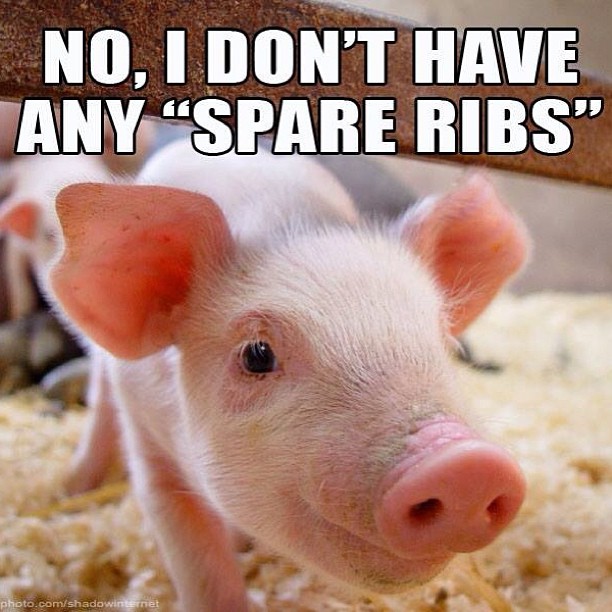I have been a vegetarian for 42 years now.
I don’t stop to think about it much, since vegetarianism is a way of life for me. I forget how unusual it is to stay on the path that I chose, and so many times have taken it for granted.
But others have reminded me over and over again of the value of my diet, especially when they ask my age. A lot of people tell me that I look younger than I actually am, and sometimes, when I’m with my daughter, others think that we’re sisters. I laugh and smile, flattered by their comments. I have to be honest and tell you that I am now 61 years old—and proud to be vegetarian.
I recently housed a young woman, a 28-year-old Los Angeles native, as a client. A stay at my mountain home was what she needed to take time-out from the big city. I provided everything for her, including her daily (vegetarian) meals. This lovely lady had a bit of an attitude, was outspoken, and completely non-vegetarian.
She mentioned how she liked to eat all types of meat, including cow’s meat, a subliminal way of suggesting that I feed her meat. I didn’t really have a reaction to that. I’m used to people talking about how they need protein in their lives. While she rambled on, I explained to her how the greens I served were plant-based proteins, the same proteins that healthy cows eat on a daily basis.
Cows are just like humans, they have the same teeth structure and long intestines that we do. What people don’t know is that humans are meant to be vegetarian. Our saliva is similar to that of a cows—alkaline in nature—versus the acidic saliva found in carnivores. Carnivorous animals have fangs that are used for tearing out flesh, and their shorter intestines are essential to quickly digesting fresh meat.
With that in mind, I told her that she could be healthy without a lack of protein, without meat. The kale, grains, and beans that I served her were some of the most fulfilling proteins out there. She expressed her doubts. Again, I wasn’t surprised. She was new to all of this.
Two weeks into her stay, I saw that she was craving her usual diet—meat. Knowing that her body was acidic from the lack of fruits and vegetables, I expected that she would go through even stronger cravings as more time passed. The body was pulling out the toxins, just like an addict on his or her rehabilitation path.
I even imagined the worse—that she would have to fall ill during her toxin release. When you make a sudden, healthy shift in your diet, your body is given the signal to cleanse. It’s talking to your cellular memories, squeezing away the toxins. This is a great opportunity for the body to cleanse itself. It’s saying this is good. The suffering is temporary. You’re cleansing yourself.
We are now a month in, and there hasn’t been one mention of meat. One night, we sat together over a cup of tea and I could feel the warmth from her smile and sincerity in her demeanor. She expressed how she never thought she’d be a vegetarian, a lifestyle she did not understand or appreciate. She even admitted that in the past, she hated vegans, laughing at all those who made the switch. But it was all because she couldn’t do it herself, until now.
She noticed how her body had changed, happy with her newly-found features. She was right—her cheeks were a lot fuller, her body more curved. She looked more fit and toned from the combination of the vegetable proteins mixed with her long, daily hikes. Her legs were sexier, her arms carrying more definition. She looked stunning, stronger, and much more confident.
I remember the first day she stepped into my home, pale and frail. Now, she felt like a new woman and acknowledged that her body loved the new shift in diet. She looked forward to every meal, always wanting seconds. She felt healthier and more beautiful, noticing herself more in the mirror. Not only that, she had more energy, felt more dynamic, and gained new ways to take better care of herself. She felt clearer, more productive. Her creativity amplified from the overall environment, her balanced diet, and the sacred space I provided.
She now has a new way of seeing vegans and vegetarians. She admits this way of life could very much be something permanent for her. We’ll see. I was happy that she opened up to me, and that she felt the nourishment that I provided for her. She even learned to cook vegetarian dishes for herself—so good and spicy—and noted the transformation of not only her body, but of her mind and spirit as well.
Her experience with vegetarianism had given her a deeper perspective and understanding about why people are changing their diet, and why many Americans are adopting the art of vegetarian practice.
Here is my advice for those who are thinking about becoming vegetarians or vegans:
1. Familiarize yourself with the different types of food groupings necessary for a more balanced diet. This includes grains, nuts, fruits, and vegetables.
2. Take note of the vitamins and minerals found in each one.
3. Eat at least three main meals a day to ensure a sufficient intake of those vitamins and minerals.
4. Eat fresh fruits and raw vegetables in season daily. Some of my favorites include apples, kale, and grapefruit.
5. Use lots of green and leafy vegetables to compliment your grains and beans.
6. Eat less sugar, carbohydrates, and wheat. These eventually become mucus in the system, building up a wall you don’t need.
7. Try to eat organic foods as much as possible.
8. Research the word alkaline. You’ll thank me later.
Blessings, Maya the Shaman.
~
Author: Maya Verzonilla
Image: C Johnson/Flickr
Editor: Lieselle Davidson

 Share on bsky
Share on bsky




Read 6 comments and reply